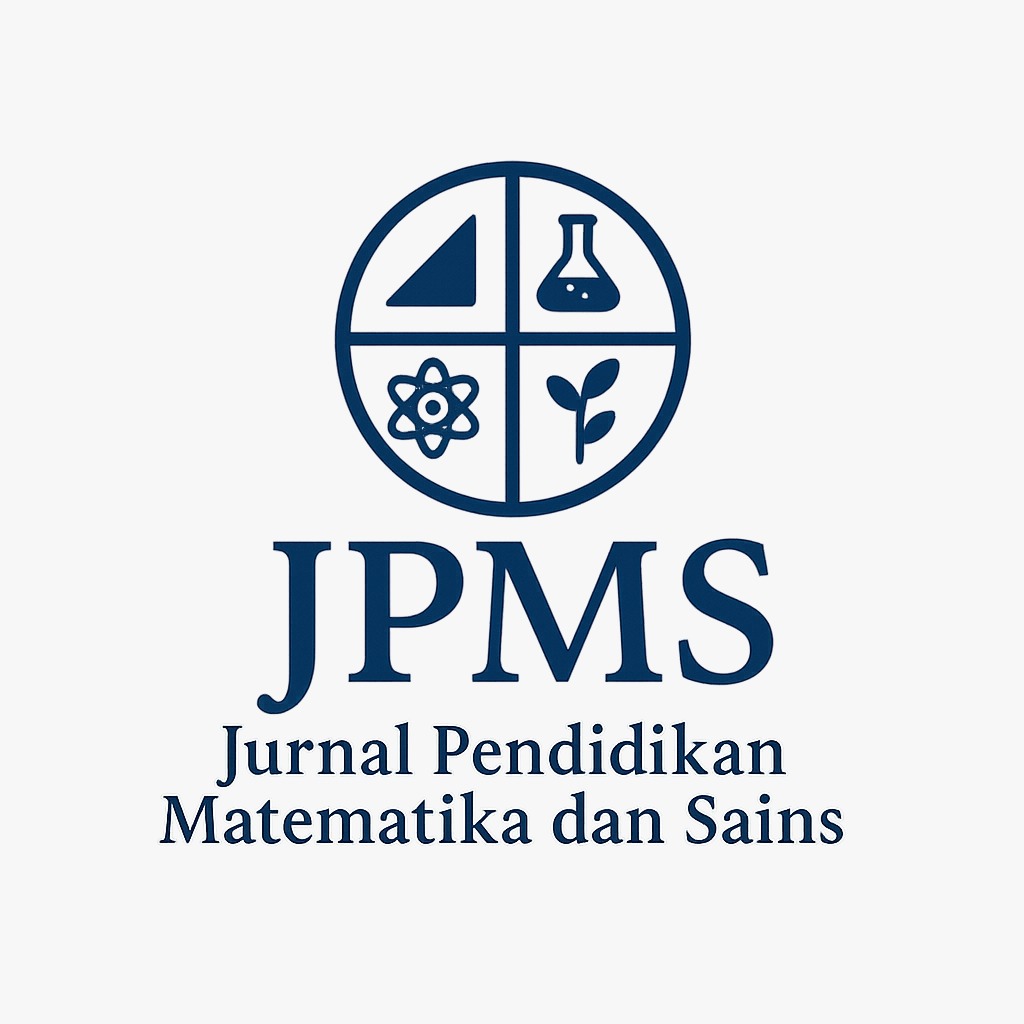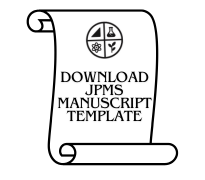Development of Inquiry-Based Science Virtual Laboratory for Improving Student Thinking Skill of Junior High School
DOI:
https://doi.org/10.21831/jpms.v5i2.16708Keywords:
inquiry learning, science virtual laboratory, thinking skillAbstract
This research was conducted to produce inquiry-based science virtual laboratory that was eligible for developing students' thinking skills in science learning, and to determine the effectiveness of a virtual laboratory to develop students' thinking skills. The research method was Research and Development (R & D), by pointing to Four D models and Borg & Gall Model. There were 4 main phases (define, design, develop, disseminate) and additional phases (preliminary field testing, main product revision, main field testing, and operational product revision). Research subjects were junior high school students of 7rd class. The instruments used included product validation questionnaire, observation sheet of thinking skill, and test. For the validation of data and student response data were analyzed descriptively; and test results were analyzed by paired-t test. The results showed that the inquiry-based science virtual laboratory product was considered as excellent by expert and teacher and it was appropriate to use in science learning. Its effectiveness to increase students' thinking skills was showed by by significant value=0,000 from t-paired test..
References
A. Collins & Halverson, R., Rethinking education in the age of technology: the digital revolution and the schools, New York: Teachers College Press, (2009). A. T. Collete & E. Chiapetta, Science Instruction in the Middle and Secondary Schools, New York: Macmillan Publishing Company, (1994). Bambang Subali & Siti Mariyam, Measuring the indonesian elementary schools student's creativity in science processing skills of life aspects on natural science subject in DIY, Journal of Elementary Education, 25, 1, 91-105 C. Friedel, Tracy Irani, Rick Rudd, Maria Gallo, Erin Eckhardt, & John Ricketts, Overtly teaching critical thinking and inquiry-based learning: a comparison of two undergraduate biotechnology Class. Journal of Agricultural Education [versi elektronik]. 49, Number 1, pp. 72 - 84 , DOI: 10.5032/jae.2008.01072, (2008). C. Wang., Wu, H.-K., Lee, S W.-Y., Hwang, F.-K., Chang, H.-Y., Wu, Y.-T., Chiou, G.-L., Chen, S., Liang, J.-C., Lin, J.-W., Lo, H.-C., & Tsai, C.-C., A review of research on technology-assisted school science laboratories, Educational Technology & Society, 17 (2), 307–320, (2014). E.L. Chiapetta & Thomas R.Koballa, Science instruction in the middle and secondary school, Boston: Allyn & Bacon, Download from www. nsta.org/main/news/pdf/ss003_42.pdf#, (2010). Ergul Remziye, Simsekli Yeter, Calis Sevigiil, Ozdilek Zehra. Sirin Gocmencelebi & Sanli Meral, The Effects of Inquiry-Based Science Teaching on Elementary School Students"Ÿ Science Process Skills and Science Attitudes, Bulgarian Journal of Science and education Policy (BJSEP), 5, Number 1, Uludag university, TURKEY, (2011). Ester Alake-Tuenter, Harm J.A. Bieman, Hilde Tobi, Arjen E.J. Wals , Ida Oosterheert & Martin Mulder, Inquiry-Based Science Education Competencies of Primary School Teachers: A literature study and critical review of the American National Science Education Standards, International Journal of Science Education, 34, 17, 2609-2640,DOI: 10.1080/09500693.2012.669076 , (2012) Flowers, Investigating the effectiveness of virtual laboratories in an undergraduate biology course. The Journal of Human Resource and Adult Learning, 7, 2, (2011). Haipan Salam, Agus Setiawan, Ida Hamidah, Pembelajaran Berbasis Virtual Laboratory untuk Meningkatkan Penguasaan Konsep pada Materi Listrik Dinamis, Proceedings of The 4th International Conference on Teacher Education; Join Conference UPI & UPSI. Bandung: UPI, (2010). J.R. Brinson, Learning outcome achievement in non-traditional (virtual and remote) versus traditional (hands-on) laboratories: A review of the empirical research. Computers & Education.page 218-237, Retrieved from http://dx.doi.org/10.1016/j.compedu.2015.07.003, (2015). K. Cotton, Teaching Thinking Skills. School Improvement Research Series, Diambil pada tanggal 18 Maret 2016, dari http://www.nwrel.orghttp://educationnorthwest.org/6/cu11.html, (1991). Kementrian Pendidikan dan Kebudayaan (Kemdikbud), Bahan uji publik kurikulum 2013, Diakses pada 25/03/2015 09:39 WIB dari http://www.pgri.or.id/download/category/132-bahan-uji-publik-kurikulum-2013.html?download=432:bahan-uji-publikkurikulum-2013, (2012). L. Rajendran, Ramachandran Veilumuthu, Divya. J, A study on the effectiveness of virtual lab in Elearning. International Journal on Computer Science and Engineering, 02, 06, 2010, 2173-2175, (2010). M. Ochanji, De-mythologizing inquiry teaching: a practical guide for inquiry teaching in middle and high school science classrooms, California Journal of Science Education, 8, 83-106, (2008). M. Weigel, James, and Gardner, Learning: peering backward and looking forward in the digital era. International Journal of Learning and Media, Volume 1, 1, 1-18, doi: 10.1162/ijlm.2009.0005, (2009). NataÅ¡a Rizman Herga, Branka ÄŒagran & Dejan Dinevski, Virtual laboratory in the role of dynamic visualisation for better understanding of chemistry in primary school, Eurasia Journal of Mathematics, Science & Technology Education, 12(3), 593-608, (2016). OECD. PISA Results from PISA 2015: Indonesia. Download from www.oecd.org.edu/pisa, (2016) R. M.Vieira, Tenreiro-Vieira, C., & Martins, I. P., Critical thinking: conceptual clarification and its importance in science education, Science Education International, 22(1), 43-54, (2011). Rezba, R.J., Sprague, c., McDonnough, J. T. Learning and assessing science process skills, Dubuque, Iowa: Kendall/Hunt Publishing Company, (2006). W. Gulo, Strategi belajar-mengajar, Jakarta: PT. Gramedia Widiasarana Indonesia, (2008)
Downloads
Published
How to Cite
Issue
Section
Citation Check
License
Jurnal Pendidikan Matematika dan Sains allows readers to read, download, copy, distribute, print, search, or link to its articles' full texts and allows readers to use them for any other lawful purpose. The journal allows the author(s) to hold the copyright without restrictions. Finally, the journal allows the author(s) to retain publishing rights without restrictions
- Authors are allowed to archive their submitted article in an open access repository
- Authors are allowed to archive the final published article in an open access repository with an acknowledgment of its initial publication in this journal

This work is licensed under a Creative Commons Attribution-ShareAlike 4.0 Generic License.





